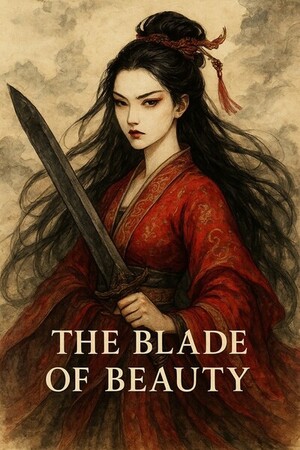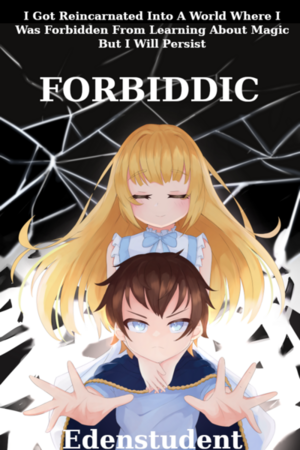Chapter 40:
The Blood Jade and the Slave Girl
I, a Hermaphrodite, Live by Taking Lives
Stepping into the courtyard was a delicate-looking boy. His face was soft and rosy, like peach blossoms. His nose was tall and straight, his lips fine and well-shaped. He had a narrow face, the cheekbones tapering quickly toward the chin, forming a refined oval, like the shape of a melon seed. But all of this was not the main point. The most striking thing was that the boy’s brows and eyes bore a seven- or eight-tenths resemblance to the girl we had seen earlier.
Gongsun Bai’s gaze fixed on the jet-black jade pendant at the boy’s neck. “That is Kun Hong,” he said firmly.
I blinked in surprise, impressed at his sharp observation.
Gongsun Bai continued, “Look at the jade on his chest. That is no ordinary jade—it is the ‘Blood Jade’ of Beiji’s High Priests. It is passed down from generation to generation, never worn by anyone except the heir. The current High Priest is Kun Hong. Therefore, this boy with the Blood Jade must be him.”
“Ohhh,” I exclaimed, suddenly enlightened, my eyes glued to the boy.
“What is it? Do you think it doesn’t look right?” Gongsun Bai asked.
“No,” I said seriously, “I just want to understand why it’s called ‘Blood Jade.’ It’s so dark, pitch black really. Shouldn’t it be called ‘Black Jade’ instead?”
“...” He was silent, clearly at a loss for words.
Little Kun Hong ran up to the girl and called out brightly, “Elder Sister.”
The girl patted her knees and stood up. “Young Master,” she answered respectfully.
Kun Hong paid no attention to the formality. He stepped closer to her, eyes fixed on the plum blossom in her hair. “Were you practicing again?”
She plucked the blossom from her hair. “Yes.”
Kun Hong stared without blinking. “It’s beautiful,” he breathed.
The girl handed it to him with a smile. “If you like it, I’ll give it to you.”
Kun Hong accepted the gift with joy, grinning from ear to ear.
The girl bowed politely. “I shall return to my quarters now.” With that, she turned and walked away, leaving Kun Hong standing in the swirling snow, staring dazedly at the blossom in his hand.
Kun Hong had no siblings. To be more precise, no High Priest ever had siblings. The reason was simple: the position of High Priest could only be passed to one child. If a family had multiple children, it could spark endless conflict.
To avoid strife, every High Priest would ensure his wife bore only one child—after which measures were taken to prevent further pregnancies. But what if that single child turned out to be a girl, or twins? No outsider knew how such matters were resolved. People could only assume that the High Priests were blessed by heaven with the mysterious gift of always fathering a son.
Thus, the girl just now could not have been Kun Hong’s real sister.
We followed her quietly. After leaving the main courtyard, she walked east, until she reached a secluded side residence. The buildings here were plain and unadorned. Inside were men and women dressed in uniform, chatting and washing up together.
Listening from outside, we soon understood. This was the servants’ quarters. The girl we had seen was just one of the Kun family’s household slaves.
When she entered, the others greeted her warmly, asking questions and fussing over her. A middle-aged woman took her by the hand, rubbed her icy palms, then tucked them into her own bosom. “Why are your hands so cold?”
The girl only smiled, saying nothing.
The woman brushed the snow from her hair. “You silly child, always sneaking about. Go on, get inside before you freeze.”
The girl smiled again and ran inside.
“Wan Ling, wait!” the woman called. She stopped, and the woman looped a scarf around her neck. “The Madam rewarded you with this.”
Wan Ling’s hands hesitated as she touched the scarf. After a long pause, she whispered, “I understand.” Then she slipped into the room.
This little girl, Wan Ling, would one day become the famed Wan Ling of the Swift Blade—an assassin whose name shook the world eighteen years later.
Every assassin carries a story. Either the assassin himself has a story, or the people he kills do. Wan Ling’s story began here.
After several days of observation, I pieced together the truth. Wan Ling was about seven years old, a household slave in the residence of Beiji’s High Priest.
A household slave—the word begins with “household,” but it does not lessen the weight of “slave.” A slave is property, no different from a cup of water or a bag of rice. A household slave is merely a slave with a longer lineage of servitude.
Wan Ling belonged to the Kun family. But her situation was somewhat unusual. She was also the daughter of a branch line of the family—technically, Kun Hong’s cousin.
Years ago, the current High Priest, Kun Buyu, had married twice. His first wife, Lady Zhao, came from a powerful family but died of illness only three years after marriage. His second wife, Lady Du, was from a lesser but respectable family. Misfortune struck again: though she conceived, she bled at four months and developed a wasting illness, bleeding endlessly until she died in despair, grieving her lost child.
Two failed marriages left Kun Buyu devastated, doubting whether he was fated for family life. But whether he wished it or not, the Kun clan—and indeed all of Beiji—would never allow their High Priest to remain childless.
At last, Kun Buyu turned to the Oracle Cauldron, the “Ask-Heaven Ding.” The rite was simple: one wrote one’s doubts on a slip of paper, cast it into the cauldron, and prayed. The cauldron, it was said, communicated with the heavens, and the gods would answer.
The response came in a single cryptic line:
“Your true partner has been with you since childhood. Do not let pavilions and halls blind your eyes.”
The words pointed Kun Buyu toward his destined wife. “Since childhood” meant someone he already knew. “Pavilions and halls” symbolized wealth and high birth; therefore, his wife must come from a lower station.
He realized the oracle referred to Wan Xuexin, a girl born into the Kun family’s hereditary slaves, the Wan clan. Such family-bound servitude was common in great houses. The Wan family had served the Kun clan for centuries, generation after generation born into bondage.
To fulfill fate, Kun Buyu married Wan Xuexin. The following year, she bore him a son—Kun Hong. At the same time, her elder brother also had a daughter: Wan Ling.
The two children were born within days of each other, yet their stations could not have been more different. One was the heir to the priesthood, born to rule. The other, a slave girl, born to serve.
Perhaps because of that faint thread of blood, Kun Hong grew unusually attached to Wan Ling. He called her “elder sister” with genuine affection and refused to treat her as a servant.
But class is not something affection can erase. Kun Hong might forget she was a slave; Wan Ling could not. She lived in the servants’ quarters, did chores, and by the age of five or six, already had daily tasks—sweeping floors, washing clothes.
Even when Madam Wan pitied her niece and occasionally sent gifts, their relationship was no longer one of kinship, but of master and servant.
In Wan Ling’s small heart, a wall had long since risen—high, cold, unscalable.
She was a slave. Nothing more.
Yet the slaves of the Priest’s household differed from ordinary servants. Because of the priesthood’s ancient traditions, some were given the chance to learn illusion arts. Just as generals taught martial skills to their closest guards, the High Priest permitted certain attendants to study illusion, so they could protect him, even die as his shield.
From a young age, Wan Ling displayed rare talent in illusion. She was chosen to be a study companion. She ate with Kun Hong, slept in the same quarters, and trained beside him.
Perhaps because of her status, she matured quickly, her sensitivity sharpened by circumstance. I observed her carefully and realized that Wan Ling’s talent surpassed Kun Hong’s by far. Yet she deliberately concealed her skill, always appearing mediocre in class, never overshadowing the heir.
This was wisdom—the kind of wisdom born of hardship. She knew never to outshine the master’s child.
The one who taught them was none other than Kun Buyu himself. He was the strictest of patriarchs—stern, quick to punish, believing in discipline and the rod. All his hopes and harshness fell on Kun Hong, the sole heir.
The boy often wept in secret, struggling with techniques beyond his reach. Illusion requires ninety-nine parts talent and only one part effort. Kun Hong lacked the ninety-nine. His sweat and tears yielded little progress.
One night, Wan Ling discovered his misery. Out of pity, she began secretly tutoring him. Her natural gifts were ten times his, though she never revealed it. Her teaching was gentle, intuitive, born of her own understanding rather than rigid doctrine.
With her help, Kun Hong began to improve. For three years, this secret continued. Kun Buyu marveled at his son’s brilliance, believing him a prodigy able to master any illusion with ease. He never suspected the hidden hand guiding him.
And it was fortunate he did not know. If Kun Buyu ever realized a true genius had been buried among his slaves—a girl of unmatched gift—what bitterness would have filled his heart?




Please sign in to leave a comment.